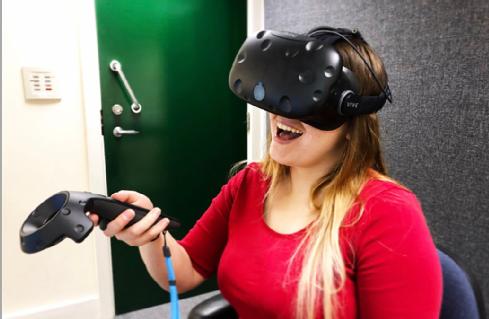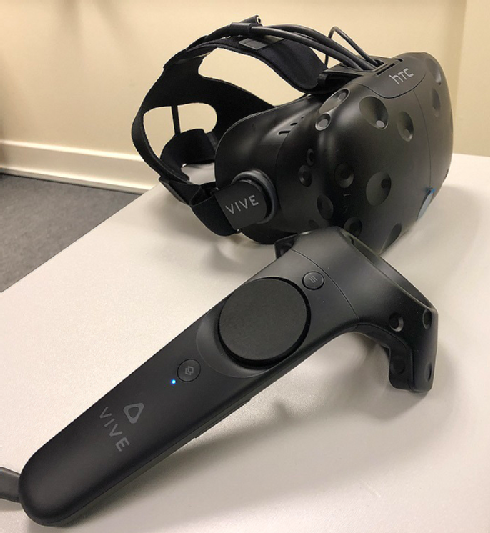VR more engaging than video and textbooks when it comes to the classroom
· Learning with VR (virtual reality) is more engaging than learning with traditional methods or videos according to researchers at the University of Warwick
· Students’ moods were improved with VR compared to traditional textbook learning and videos
· Test performance was best with VR followed by traditional textbook learning and then by video
Virtual reality (VR) is the most engaging and emotionally positive learning method in comparison to textbook learning and video. VR shows great potential to supplement or replace traditional learning methods and create new experiences according to researchers at the University of Warwick.
VR headsets are the most stimulating form of learning method according to researchers at the University of Warwick. It was closely followed by textbook learning, then video.
was closely followed by textbook learning, then video.
Three groups of students were assigned to three different types of learning: fully immersive VR environment, traditional textbook-style materials, or 2D video of the VR environment. They all learnt about the same subject (biology), and had their learning, emotional response, and learning experience measured.
Researchers found that positive emotions were rated higher for the group who experienced the VR learning method, followed by textbook, then video learning. VR students also performed better than students learning with video, showing that the active interaction with the VR environment helped improve learning.
Multiple students reported video learning as ‘basic’ and ‘boring’ where as VR was described as ‘engaging’ and ‘made learning more exciting’.
This study shows that VR can replicate or complement traditional learning methods inside and outside a classroom setting. Such VR environments can also allow for learning that cannot be replicated in reality, or would be too costly to be accessible.
Devon Allcoat, a PhD student from the Department of Psychology at the University of Warwick comments:
“This study showed that VR could transform classroom teaching, as you could use VR to go for a walk with dinosaurs and increase engagement in the classroom and give pupils a more positive learning experience.”
The paper ‘Learning in virtual reality: Effects on performance, emotion and engagement’ has been published in Research in Learning Technology Journal.
ENDS
13 DECEMBER 2018
NOTES TO EDITORS
Images available at:
https://warwick.ac.uk/services/communications/medialibrary/images/december2018/devon_allcoat_1.jpg
https://warwick.ac.uk/services/communications/medialibrary/images/december2018/vr_headset.png
Paper: https://journal.alt.ac.uk/index.php/rlt/article/view/2140
or at: http://wrap.warwick.ac.uk/110897/
DOI:
10.25304/rlt.v26.2140
FOR FURTHER INFO CONTACT:
Alice Scott, Media Relations Manager- Science, University of Warwick
E-mail: alice.j.scott@warwick.ac.uk
Tel: 02476574255 or 07920531221
FOR FURTHER INFO CONTACT:
Alice Scott, Media Relations Manager- Science, University of Warwick
E-mail: alice dot j dot scott at warwick dot ac dot uk
Tel: 02476574255 or 07920531221
